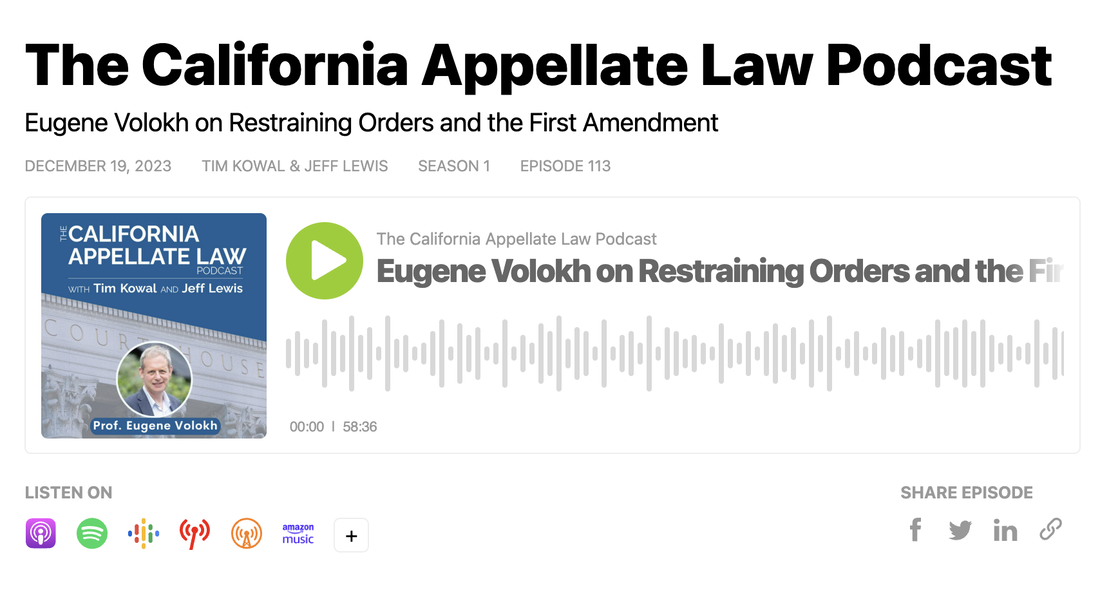|
A recent podcast featuring Prof. Eugene Volokh, Senior Legal Advisor to Protect The 1st, looks at restraining orders and their potential for overbreadth – particularly when they deal with speech (and not conduct) in the digital age.
Volokh joined the California Appellate Podcast with Tim Kowal and Jeff Lewis on December 19 to tackle the issue, about which the professor has written extensively. As Volokh points out, criminal harassment and restraining order laws are gradually undergoing a curious evolution: where once they largely (and constitutionally) restricted unwanted speech to a particular person, now many orders restrict speech about a particular person. It’s the latter category of orders that implicate the First Amendment and could potentially constitute unlawful prior restraints. Volokh discusses this issue at length in the podcast, though it is perhaps best summarized by a hypothetical he posits in a 2022 article he wrote for the Harvard Journal of Law and Public Policy: “Donna is publicly criticizing Paul. So Paul sues her, and gets an injunction such as this: ‘[Defendant] is permanently enjoined from publishing… any statements whatsoever with regard to the plaintiff.’ “It’s hard to reconcile such an injunction (whether entered in a libel case or as a ‘personal protective order’) with First Amendment precedents. The injunction isn’t limited to speech within a First Amendment exception, such as libel or true threats. It is far from ‘narrowly tailored,’ which is often set forth as a requirement for the rare content-based anti-speech injunctions that are permitted.” Even so, as of last year Volokh had found over 200 such injunctions – many involving cyberstalking and other online conduct, a particularly murky area with outsized potential to implicate protected speech. As Volokh points out, this trend threatens the imposition of liability not just on criminal libel and falsehoods but also, potentially, on true statements and opinions. One such case is Chan v. Ellis, in which poet Linda Ellis sued website author Matthew Chan for criticizing Ellis’ copyright enforcement practices. There, the Supreme Court of Georgia reversed a lower court ruling ordering Chan to delete “all posts relating to Ms. Ellis” from his website, finding that the posts were not sufficiently directed to Ellis. Rather, they were merely opinion-based assessments about her. The California Appellate Podcast is, in large part, oriented around practical advice for practicing attorneys on issues of public importance. Here, the hosts urge lawyers to look closely at restraining orders for the “to/about” dichotomy. We’d second that and recommend the podcast to anyone interested in how judicial reactions to changing technologies can result in First Amendment backslides. Comments are closed.
|
Archives
June 2024
Categories
All
|
ABOUT |
ISSUES |
TAKE ACTION |



 RSS Feed
RSS Feed